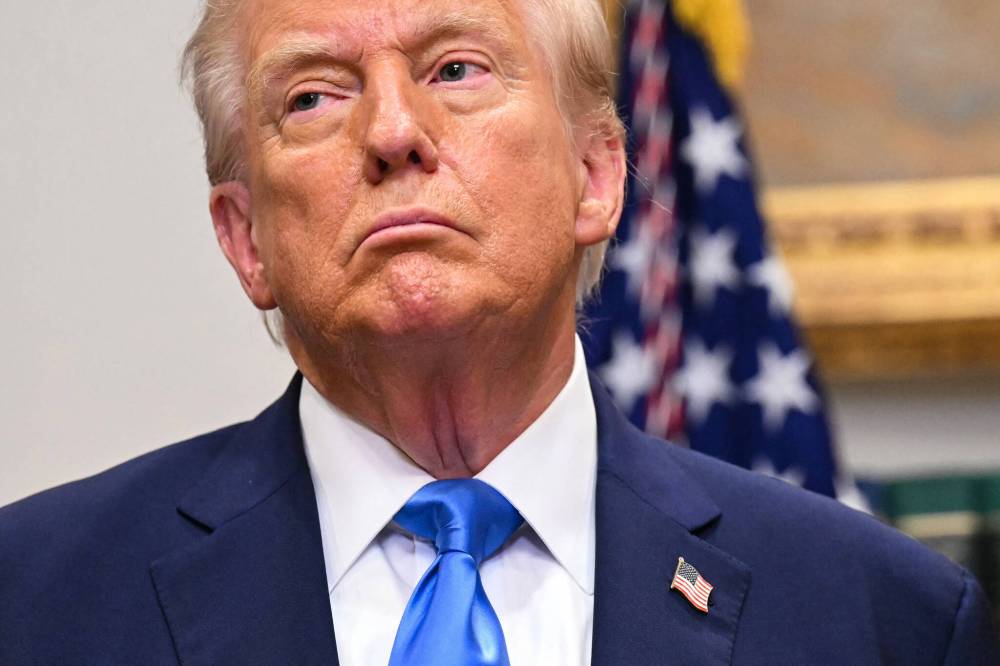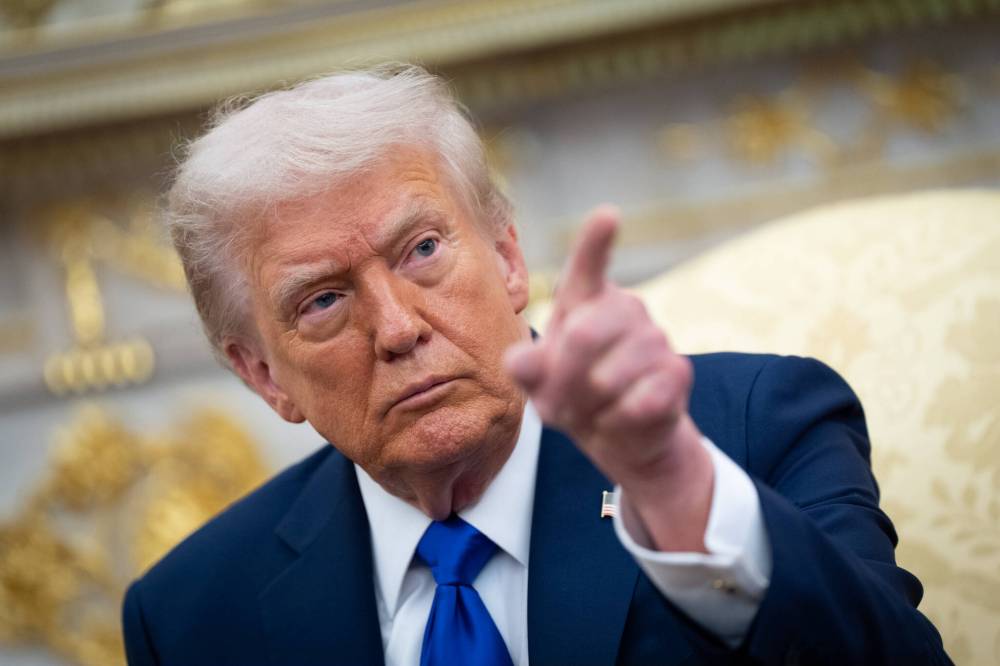Why is Trump so opposed to advancing human rights?
Advertisement
Read this article for free:
or
Already have an account? Log in here »
To continue reading, please subscribe:
Monthly Digital Subscription
$1 per week for 24 weeks*
- Enjoy unlimited reading on winnipegfreepress.com
- Read the E-Edition, our digital replica newspaper
- Access News Break, our award-winning app
- Play interactive puzzles
*Billed as $4.00 plus GST every four weeks. After 24 weeks, price increases to the regular rate of $19.00 plus GST every four weeks. Offer available to new and qualified returning subscribers only. Cancel any time.
Monthly Digital Subscription
$4.75/week*
- Enjoy unlimited reading on winnipegfreepress.com
- Read the E-Edition, our digital replica newspaper
- Access News Break, our award-winning app
- Play interactive puzzles
*Billed as $19 plus GST every four weeks. Cancel any time.
To continue reading, please subscribe:
Add Free Press access to your Brandon Sun subscription for only an additional
$1 for the first 4 weeks*
*Your next subscription payment will increase by $1.00 and you will be charged $16.99 plus GST for four weeks. After four weeks, your payment will increase to $23.99 plus GST every four weeks.
Read unlimited articles for free today:
or
Already have an account? Log in here »
With the National Guard deployed in certain U.S. cities, ICE agents on the prowl for potential deportees and a seemingly lengthy “enemies list,” U.S. President Donald Trump is clearly no champion of human rights.
How do we account for why Trump couldn’t care less about human rights considerations? Secondly, what does his blatant dismissal of human rights mean for the rest of the world?
When he has been asked about the thorny issue of human rights, Trump has responded in his typical way of viewing everything through a transactional lens. Advocacy for international human rights, Trump maintains, is often counterproductive and tends to be more harmful than beneficial to U.S. interests.

Sarah l. voison / The Washington post Files
U.S. President Donald Trump
In addition, the U.S. president has been quick to call out hypocrisy and to criticize the holier-than-thou world leaders who wax eloquently about their embrace of a human rights agenda. He has a point. Just because someone talks a good game about human rights protections does not always translate into meaningful action on the human rights front.
Still, the laundry list of examples of how Trump himself has run roughshod over human rights concerns is long — and too long to compile in an op-ed piece. There has been his uncomfortable embrace of rights-abusing and dictatorial leaders such as Russia’s Vladimir Putin, Hungary’s Viktor Orbán, North Korea’s Kim Jung Un and Turkey’s Recep Tayyip Erdogan.
In his first term as president, Trump also expressed no interest in the U.S. State Department’s annual human rights report (except to downplay criticism of certain countries). Furthermore, he spoke glowingly of the use of torture and waterboarding of suspected “evil doers,” imposed a “Muslim” travel ban and separated migrant parents entering the U.S. at the Mexican border from their children and excoriated and sanctioned the International Criminal Court.
Arguably the most telling illustration of his lack of empathy for championing human rights was his 2019 love-in with Mohammed bin Salman after the Saudi Crown Prince had Washington Post columnist Jamal Khashoggi dismembered with a bone saw in Istanbul. Trump’s response to the subsequent outcry over why he sided with bin Salman tells you everything you need to know: “Because it’s ‘America First’ for me. It’s all about ‘America First.’ We’re not going to give up hundreds of billions of dollars in orders and let Russia, China and everybody else have them.”
More recently, Trump has continued on with his authoritarian dance with a cast of despotic rulers from Egypt, El Salvador, China and Qatar. There are also the cuts to U.S. development assistance and the dismantling of the U.S. Agency for International Development, his unrelenting deportation campaign and travel bans and his loose talk about cleansing Palestine and leaving Ukraine to fend for itself.
Lastly, the Trump administration, under the guise of eradicating waste and inefficiency, has moved to eliminate most of the offices in the State Department’s Bureau of Democracy, Human Rights, and Labor (first instituted by then-president Jimmy Carter back in the mid-1970s).
Pointing to Trump’s repeated denunciation of “globalism” helps to explain his hostility toward human rights. He equates the term with international engagement at America’s expense, multilateral co-operation that damages U.S. interest and international organizations and treaties that emasculate U.S. power. Translation: the international human rights regime is bad for America.
Of course, Trump’s adherence to an “America First” or isolationist doctrine also spells bad news for human rights advocacy abroad. He is convinced that issues around human rights will undermine U.S. sovereignty and policy autonomy, trigger an unnecessary disruption in relations with other outcast countries and would only result in unwanted criticism and scrutiny of America’s own human rights shortcomings.

President Donald Trump on Tuesday. MUST CREDIT: Sarah L. Voisin/The Washington Post
Sarah L. Voisin/The Washington Post
U.S. President Donald Trump
The only thing that matters to Trump (besides his own well-being) is securing U.S. interests through mostly acting alone — and to hell with every other country in the world. His singular focus is on money, economic benefits and corporate profits. It’s not surprising, then, why human rights would be given such short shrift.
It’s important to recognize that other countries around the world will take their cues from Trump’s lack of concern about human rights. They will quickly learn that it doesn’t pay to take up the mantle of international human rights. And, worse, it sends the wrong message to would-be autocrats and authoritarians that they have a virtual free rein to engage in widespread human rights violations.
So I don’t hold out any hope the “me-myself-and I” Trump is going to see the light on human rights. What he fails to understand is that advancing a human rights agenda, strengthening the international human rights architecture, covenants and norms and firmly becoming “the voice of the voiceless” is integral to America’s exercise of “soft power” diplomacy. Incorporating human rights into U.S. foreign policy doesn’t undermine U.S. diplomatic, economic and security interests; it fortifies and enhances them.
Ignoring international human rights considerations doesn’t bolster America. But Trump still seems determined to sit at the table of infamous despots.
Peter McKenna is professor of political science at the University of Prince Edward Island in Charlottetown.

